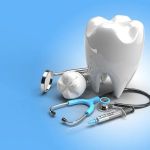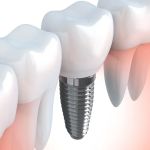1. Recognizing and Understanding Teeth Grinding During Sleep
Teeth grinding—or bruxism—affects an estimated 10–15% of adults in the U.S. and often occurs unknowingly during sleep. Characterized by involuntary clenching or grinding of the teeth, bruxism can lead to worn enamel, jaw pain, headaches, and disrupted sleep for both sufferers and their partners. Recognizing that you grind your teeth at night is the first step toward relief. Common signs include morning jaw stiffness, earache-like pain, and a grinding noise reported by a bed partner. In more severe cases, bruxism contributes to tooth fractures and temporomandibular joint (TMJ) disorders. Understanding the mechanics—overactive jaw muscles triggered by stress, misaligned teeth, or sleep disorders—helps guide targeted solutions for how to fix teeth grinding during sleep.
2. Identifying and Reducing Lifestyle and Dietary Triggers
Lifestyle factors often exacerbate nighttime grinding. Caffeine and alcohol, especially when consumed in the evening, can increase muscle activity during sleep. Nicotine similarly elevates arousal and jaw tension. Implementing a trigger-reduction plan—such as cutting off caffeine after noon, limiting alcohol to weekends, and avoiding tobacco—can significantly decrease grinding episodes. Anecdotal evidence from Sleep Foundation surveys shows that 60% of bruxism sufferers noticed improvement after reducing evening stimulants. Additionally, evening routines that include herbal teas like chamomile or lavender help calm the nervous system, addressing one root cause of nocturnal jaw clenching.
3. Custom Dental Devices and Professional Interventions
Dental appliances remain a cornerstone in treating sleep bruxism. Custom-fitted night guards, created by dentists, provide a physical barrier between upper and lower teeth, preventing enamel wear and absorbing grinding forces. Over-the-counter “boil-and-bite” guards offer a budget-friendly alternative but may not fit as precisely, potentially leading to discomfort or reduced efficacy. In more complex cases, dentists may recommend occlusal adjustments—minor reshaping of tooth surfaces—to correct bite misalignments. For TMJ-related pain, bite splints that reposition the jaw can alleviate muscle strain. Professional intervention is essential to ensure proper fit and to monitor dental health, so consider visiting Dentistry Toothtruth for personalized device options and expert guidance on how to fix teeth grinding during sleep.
4. Stress Reduction Techniques to Calm Jaw Muscles
Psychological stress is a major bruxism trigger. Incorporating daily stress-management practices—such as mindfulness meditation, progressive muscle relaxation, and journaling—reduces overall muscle tension. For example, dedicating ten minutes each evening to deep-breathing exercises lowers cortisol levels, which in turn decreases nocturnal jaw clenching. Biofeedback therapy, guided by a trained professional, teaches patients to recognize and control jaw muscle activity. Studies from the American Academy of Sleep Medicine report that combining a night guard with biofeedback reduces grinding frequency by up to 50% over six weeks.
5. Optimizing Sleep Environment and Habits
Poor sleep hygiene can worsen bruxism. Bedroom environments that are too warm, noisy, or bright disrupt restorative sleep stages, during which bruxism episodes often occur. Aim for a cool (65–68°F), dark, and quiet room. Establish a consistent sleep schedule, going to bed and waking up at the same times daily—even on weekends—to regulate your circadian rhythm. Avoid screen exposure at least an hour before bed; blue light blocks melatonin production and can increase muscle tension. White noise machines or earplugs may also improve sleep continuity, reducing opportunities for nighttime jaw activity.
6. Physical Therapy and Jaw Exercises
Targeted jaw exercises strengthen and relax masticatory muscles. Gentle mandible stretches—opening the mouth slowly to comfort limits and holding for 10 seconds—improve flexibility. Massaging the masseter muscles in circular motions before bed reduces stiffness. Physical therapists specializing in orofacial pain can employ ultrasound therapy to decrease muscle hyperactivity. A small clinical trial in the Journal of Oral Rehabilitation found that participants practicing jaw relaxation exercises twice daily experienced a 35% reduction in grinding intensity over eight weeks, illustrating the power of physical therapy in learning how to fix teeth grinding during sleep.
7. Real-Life Case: Anna’s Journey to Relief
Anna, a 32-year-old graphic designer, suffered from chronic morning headaches and tooth sensitivity for years before discovering her sleep bruxism. Referred by her physician, she visited Dentistry Toothtruth and received a custom night guard. Simultaneously, Anna committed to an evening routine: herbal tea, ten minutes of guided meditation, and gentle jaw stretching. Within three weeks, her partner noticed the grinding noise had stopped, and Anna’s morning jaw pain diminished entirely. Her case underscores the importance of a multifaceted approach—combining dental, behavioral, and environmental strategies—to effectively fix teeth grinding during sleep.
8. Taking Action: Your Plan to Stop Grinding Tonight
Addressing teeth grinding during sleep demands personalized solutions. Here’s a roadmap to get started:
- Schedule a dental exam for a custom night guard at Dentistry Toothtruth.
- Eliminate evening stimulants: no caffeine after noon, limit alcohol, and avoid nicotine.
- Adopt a nightly stress-reduction ritual: meditation, journaling, or progressive muscle relaxation.
- Optimize sleep hygiene: cool, dark, quiet bedroom; consistent sleep-wake times; no screens before bed.
- Practice jaw exercises and self-massage twice daily to relax masticatory muscles.
- Track progress in a sleep diary, noting reductions in symptoms and grinding episodes.
By integrating these strategies and seeking professional support, you can stop grinding, protect your dental health, and wake up pain-free. Don’t wait—start your journey to peaceful sleep and a stronger smile tonight.







 MGK Dental0.0 (0 review)
MGK Dental0.0 (0 review) Think Better Life - Orofacial Pain, TMJ & Sleep Disorder Solutions Chicago4.0 (11 review)
Think Better Life - Orofacial Pain, TMJ & Sleep Disorder Solutions Chicago4.0 (11 review) Jin Hahn, DMD4.0 (18 review)
Jin Hahn, DMD4.0 (18 review) Community Dental Care - Maplewood2.0 (224 review)
Community Dental Care - Maplewood2.0 (224 review) Northland Family Dentistry4.0 (111 review)
Northland Family Dentistry4.0 (111 review) Dental365 - Bellmore4.0 (318 review)
Dental365 - Bellmore4.0 (318 review) The Importance of Oral Health Education During Pregnancy for a Healthy Pregnancy
The Importance of Oral Health Education During Pregnancy for a Healthy Pregnancy Best Tips for Brushing Your Teeth Properly for Healthy Gums: Essential Techniques for Oral Health
Best Tips for Brushing Your Teeth Properly for Healthy Gums: Essential Techniques for Oral Health Why Skipping Dental Checkups Can Lead to Bigger Oral Health Problems
Why Skipping Dental Checkups Can Lead to Bigger Oral Health Problems Advantages of Porcelain Dental Restorations
Advantages of Porcelain Dental Restorations How Can Diabetes Cause Tooth and Gum Problems? Preventing and Managing Oral Health Issues
How Can Diabetes Cause Tooth and Gum Problems? Preventing and Managing Oral Health Issues Healthy Habits for Promoting Good Oral Health and Hygiene: Tips for a Healthy Smile
Healthy Habits for Promoting Good Oral Health and Hygiene: Tips for a Healthy Smile